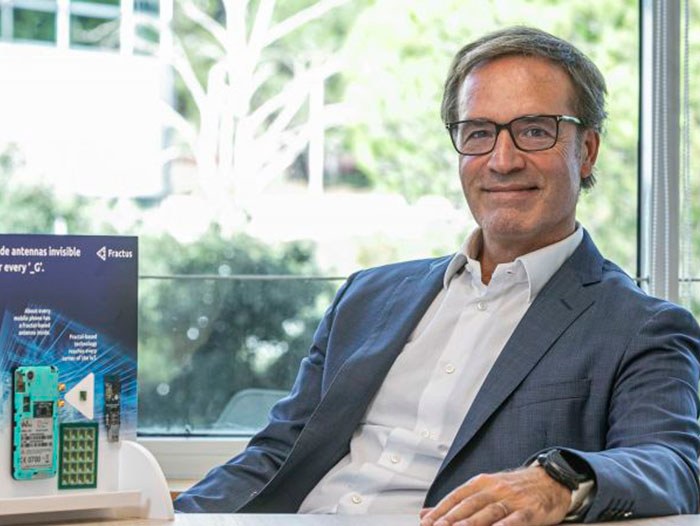Rubén Bonet (Fractus): “In Catalonia and Spain, patenting is not a priority”
Nov 04, 2025
Rubén Bonet, co-founder of Fractus, reflects in an interview with VIA Empresa on Fractus’s journey since it was founded as a UPC spin-off, and highlights the “a lot of work to be done” that Catalonia still has in patent applications. In this regard, he specifies that, with the Fractus-UPC Deep Tech Hub, the goal is to contribute a small part “so that the technologies that emerge, in this case from the UPC, find their path and reach the market.”
Nowadays, it is very difficult to imagine that the mobile phones that come out on the market, with triple-camera systems, foldable screens, and latest-generation chips, would have an antenna on the top. The fact that it is not there, however, is thanks to technology developed by Rubén Bonet and Carles Puente, professor and, at the time, doctoral student at the School of Telecommunications Engineering of Barcelona (ETSETB), through Fractus, one of the first spin-offs born at the Universitat Politècnica de Catalunya - BarcelonaTech (UPC) just over 25 years ago.
In an interview with the economic newspaper VIA Empresa, Bonet explains that in 1999, when mobile phones were still hardly talked about, Puente had a doctoral thesis with a lot of research on how to move from the single-band technology of the time to a technology that would operate efficiently with multiple frequencies, which is the one used today. With the idea of this project, they set up Fractus, which develops multi-frequency antennas that, moreover, are much smaller and can be placed in devices in a compact way.
The experience of transforming an idea born at the university into a company with more than 120 patents in the United States, Europe, and Asia makes him clear that in Catalonia it is necessary to create technology transfer offices at each university and bring the world of science closer to management. In this sense, Bonet comments that with the Fractus-UPC Deep Tech Hub they precisely want to contribute their small grain of sand “so that the technologies that emerge, in this case from the UPC, find their path and reach the market.” For this reason, among other initiatives, the Next Frontier Founders was born, an acceleration program for companies that are born at the University, which started recently with thirteen companies.
Bonet also mentions the need for Catalonia to “stop thinking that patents are not very useful and that they are too expensive” and instead begin to see them as a form of “technological differentiation and the ability to monetize our significant scientific output."

Share: